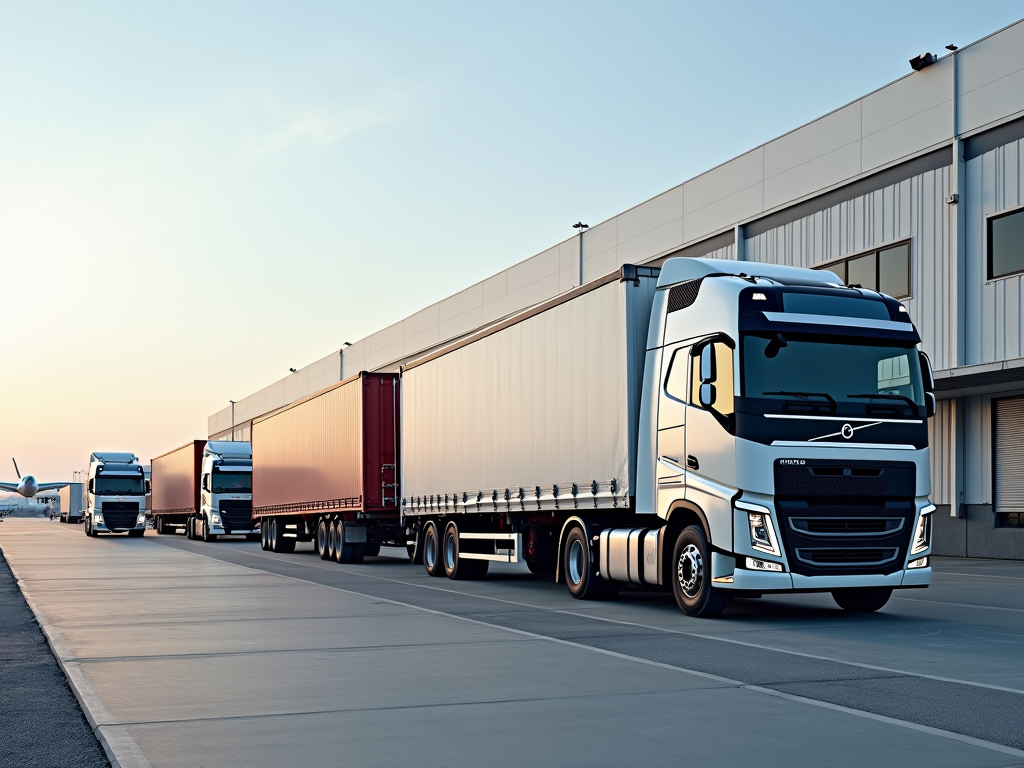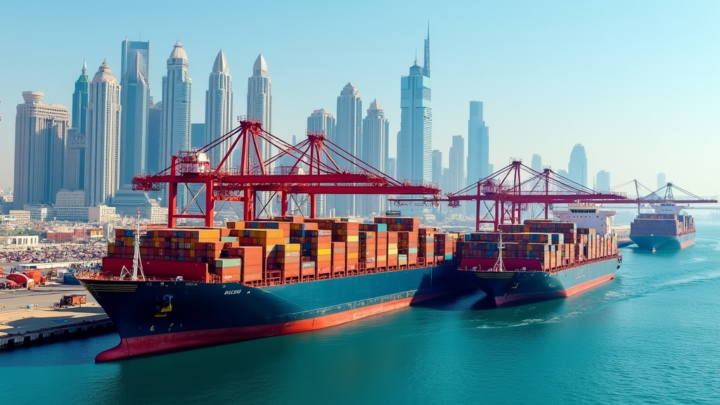Dubai has solidified its status as the leading gateway for international trade in the Middle East due to its strategic location, advanced infrastructure, and favorable business environment. This vibrant city serves as a critical hub for the movement of goods between East and West, capitalizing on its geographical advantages and enhancing global trade connectivity. Moreover, Dubai’s pro-business policies and various Free Trade Zones attract foreign investments, further solidifying its role as a trading powerhouse. This article delves into the factors that contribute to Dubai’s prominence in international trade, highlighting its logistics capabilities, investment opportunities, and supportive regulatory framework.
Strategic Geographical Location

One of the most significant factors contributing to Dubai’s status as a trade gateway is its strategic geographical location. Situated at the crossroads of Europe, Asia, and Africa, Dubai offers unmatched access to key global markets. The city’s proximity to major shipping routes allows for efficient transportation of goods, making it an attractive destination for multinational corporations. Furthermore, Dubai’s time zone advantages facilitate simultaneous business interactions with regions across the globe. The geographical positioning enhances not only trade activities but also creates a nexus for tourism and commerce, which are vital for the local economy.
Dubai showcases world-class infrastructure that supports its ambitions in international trade and logistics. The city features state-of-the-art ports and airports, such as the Jebel Ali Port, which is the largest port in the Middle East, and Dubai International Airport, one of the busiest airports worldwide. This infrastructure ensures the seamless movement of goods, ultimately reducing transit times and costs. Additionally, Dubai’s road networks and logistics facilities are equipped to handle large volumes of cargo, further streamlining supply chain operations. The investment in modern technology and facilities demonstrates Dubai’s commitment to maintaining its role as a global trade hub.
Favorable Business Environment

Dubai’s business environment is particularly conducive to international trade, marked by various economic incentives and a comprehensive regulatory framework. The establishment of Free Trade Zones, where companies can operate with minimal restrictions and tax exemptions, attracts foreign direct investment. Such zones cater to specific industries, like technology, finance, and media, promoting sector-specific growth. Moreover, Dubai’s commitment to maintaining low corporate taxes boosts profitability, making it an appealing destination for international businesses. The Dubai government proactively supports entrepreneurship and innovation, creating a vibrant ecosystem for trade and commerce.
Investment Opportunities in Diverse Sectors
Dubai offers a plethora of investment opportunities across various sectors, providing businesses with numerous paths to engage in international trade. Some key sectors fueling Dubai’s economic growth include:
- Logistics and Transportation
- Tourism and Hospitality
- Technology and E-Commerce
- Construction and Real Estate
- Financial Services
Each of these sectors plays a pivotal role in enhancing Dubai’s trade capabilities. For instance, the logistics and transportation sector contributes to efficient supply chain management, while tourism and hospitality drive business travel and global engagement. The city’s diversified economy decreases dependency on oil revenues, stabilizing growth prospects and attracting international trade players.
Robust Networking and Partnerships
Another noteworthy aspect of Dubai’s status as a trade gateway is its robust networking and partnership opportunities. The city hosts numerous international trade fairs, exhibitions, and business forums that connect global stakeholders. These events not only showcase innovative products and services but also facilitate engagement between businesses and potential partners from around the world. Moreover, Dubai harbors a multicultural workforce, making collaboration across borders more accessible. The city’s commitment to building partnerships extends beyond business, fostering diplomatic relations that further enhance trade opportunities in the Middle East.
Conclusion
In summary, Dubai’s strategic geographical location, world-class infrastructure, favorable business environment, diverse investment opportunities, and robust networking capabilities collectively position it as the gateway for international trade in the Middle East. The city’s appeal continues to grow, driven by its proactive approach to facilitating global commerce and its commitment to innovation and sustainability. As more businesses recognize the advantages of operating within Dubai, the city will likely further cement its status as an essential trade hub on the world stage.
Frequently Asked Questions
1. Why is Dubai known as a trading hub?
Dubai’s strategic location, advanced infrastructure, favorable business policies, and diverse investment opportunities contribute to its reputation as a leading trading hub in the Middle East.
2. What are Free Trade Zones in Dubai?
Free Trade Zones in Dubai are specially designated areas where foreign businesses can operate with benefits like tax exemptions and minimal regulatory hurdles, fostering a conducive environment for international trade.
3. How does Dubai support international businesses?
Dubai offers a supportive environment through pro-business regulations, infrastructural investments, and various incentives to attract and nurture international businesses.
4. What sectors drive Dubai’s economy?
Key sectors driving Dubai’s economy include logistics, tourism, technology, construction, and financial services, each contributing to its dynamic trade landscape.
5. How does Dubai facilitate global networking?
Dubai hosts numerous trade fairs, exhibitions, and business forums, allowing global stakeholders to connect, collaborate, and explore business opportunities across different regions.



